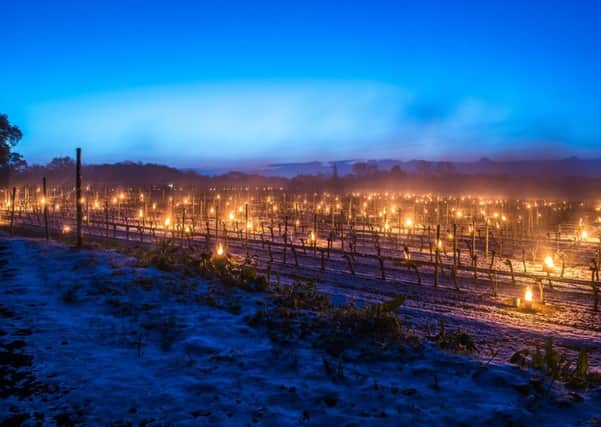RICHARD ESLING: Sixty-year low for world wine production


According to a report from Reuters, it is the lowest wine production worldwide since 1957.
Much of this fall has been due to low production in Europe, with production in France down a spectacular 19 percent and in Italy, the number one wine producer globally, the drop has been as much as 17 percent.
Advertisement
Hide AdAdvertisement
Hide AdSpain, number three in world production rankings, did not escape either, with the drop being near 20 percent.
The so-called New World has faired a little better, with the USA recording a drop of only one percent, although of significance as it is now the fourth largest wine producing country. In South America, the figures are somewhat contrasted, with Chile recording a drop of six percent, while Argentina saw growth of 25 percent.
Differences in annual production are, of course, due to adverse weather and climatic conditions, which can naturally affect wine producing countries in the southern hemisphere as well as in the north. In Europe, the massive drop was principally due to a severe late air frost towards the end of April 2017. Very cold air from the Arctic and Siberia, swept down across the whole of Europe, unfortunately just when the buds on the vines were in full swing, due to warm weather in early March.
Global warming in relation to wine production, though largely benefitting the winemakers in the peripheral regions such as England, can be of more harm than good.
Advertisement
Hide AdAdvertisement
Hide AdMore severe climatic and weather ‘events’ are being produced, which have caused floods in Chile, dramatic hail storms and abnormally wet conditions in Europe. Warm weather in very early spring causes the buds to burst too early, leaving them vulnerable to the almost inevitable late frosts.
Hawke’s Bay in New Zealand saw a drop in production of some 21 percent due to excessive rain, again underlining the susceptibility of New World vineyards as well as those in Europe. Total wine production in New Zealand was down by nine percent. While Argentina saw an increase, it is in relation to very low production the previous year in 2016. Fortunes appear to have been reversed in some cases, since drought, more often associated with southern hemisphere climes, affected production in France, Spain and Italy – on top of losses due to the frosts.
The poor wine-growers have a lot to put-up with.
With regards to the expanding UK wine industry, being a cool climate and on the very edge of climatic acceptability for commercial wine growing, every year is a challenge. Last year saw losses from frost as with other countries in Europe, but due to various frost prevention measures, disaster was avoided.
As Simon Woodhead, winemaker at Stopham Estate near Pulborough, said: “Rain can be a bigger problem than frost. Rain at flowering time for the vines is a complete disaster, as the fruit does not set and there are thus no grapes to harvest.”
Advertisement
Hide AdAdvertisement
Hide AdWith frost, there can sometimes be a second budding and normally not all the vineyard is affected. Rain affects the entire crop.
Due to extensive planting of vines and the creation of new vineyards in England, production continues to rise year on year, despite the weather. And on another cheerier note concerning global production, although quantity may be down, quality looks very promising indeed for the 2017 vintage.
Global consumption of wine is also on the rise and is estimated to increase by 2.2 percent.
Regardless of the comments of some marketers, it looks unlikely that there is going to be a shortage of wine, but there is a possibility that some prices may rise.
Advertisement
Hide AdAdvertisement
Hide AdRichard Esling BSc DipWSET is an experienced wine consultant, agent, writer and educator. An erstwhile wine importer, he runs a wine agency and consultancy company called WineWyse, is founder and principal of the Sussex Wine Academy, chairman of Arundel Wine Society and is an International Wine Judge. Twitter @richardwje. Visit www.winewyse.com.
Don’t miss out on all the latest breaking news where you live.
Here are four ways you can be sure you’ll be among the first to know what’s going on.
1 Make our website your homepage
2 Like our Facebook page
3 Follow us on Twitter
4 Register with us by clicking on ‘sign in’ (top right corner). You can then receive our daily newsletter AND add your point of view to stories that you read here.
And do share with your family and friends – so they don’t miss out!
Be part of it.